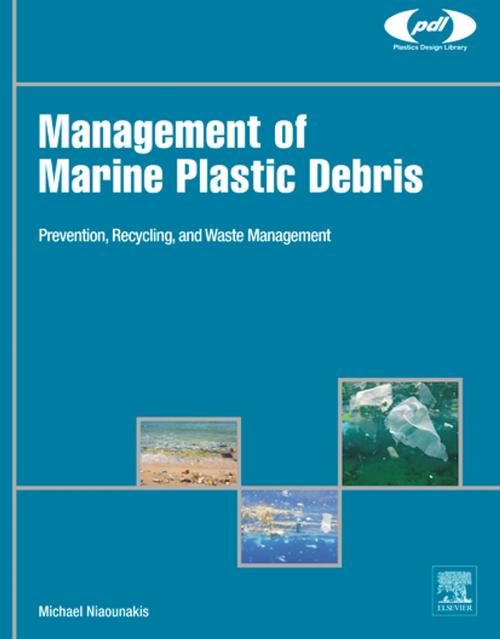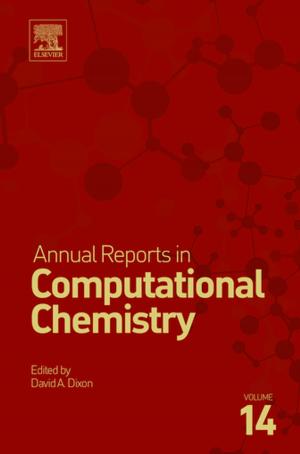| Author: | Michael Niaounakis | ISBN: | 9780323443999 |
| Publisher: | Elsevier Science | Publication: | July 4, 2017 |
| Imprint: | William Andrew | Language: | English |
| Author: | Michael Niaounakis |
| ISBN: | 9780323443999 |
| Publisher: | Elsevier Science |
| Publication: | July 4, 2017 |
| Imprint: | William Andrew |
| Language: | English |
Management of Marine Plastic Debris gives a thorough and detailed presentation of the global problem of marine plastics debris, covering every aspect of its management from tracking, collecting, treating and commercial exploitation for handing this anthropogenic waste. The book is a unique, essential source of information on current and future technologies aimed at reducing the impact of plastics waste in the oceans. This is a practical book designed to enable engineers to tackle this problem—both in stopping plastics from getting into the ocean in the first place, as well as providing viable options for the reuse and recycling of plastics debris once it has been recovered.
The book is essential reading not only for materials scientists and engineers, but also other scientists involved in this area seeking to know more about the impact of marine plastics debris on the environment, the mechanisms by which plastics degrade in water and potential solutions. While much research has been undertaken into the different approaches to the increasing problem of plastics marine debris, this is the first book to present, evaluate and compare all of the available techniques and practices, and then make suggestions for future developments. The book also includes a detailed discussion of the regulatory environment, including international conventions and standards and national policies.
- Reviews all available processes and techniques for recovering, cleaning and recycling marine plastic debris
- Presents and evaluates viable options for engineers to tackle this growing problem, including the use of alternative polymers
- Investigates a wide range of possible applications of marine plastics debris and opportunities for businesses to make a positive environmental impact
- Includes a detailed discussion of the regulatory environment, including international conventions and standards and national policies
Management of Marine Plastic Debris gives a thorough and detailed presentation of the global problem of marine plastics debris, covering every aspect of its management from tracking, collecting, treating and commercial exploitation for handing this anthropogenic waste. The book is a unique, essential source of information on current and future technologies aimed at reducing the impact of plastics waste in the oceans. This is a practical book designed to enable engineers to tackle this problem—both in stopping plastics from getting into the ocean in the first place, as well as providing viable options for the reuse and recycling of plastics debris once it has been recovered.
The book is essential reading not only for materials scientists and engineers, but also other scientists involved in this area seeking to know more about the impact of marine plastics debris on the environment, the mechanisms by which plastics degrade in water and potential solutions. While much research has been undertaken into the different approaches to the increasing problem of plastics marine debris, this is the first book to present, evaluate and compare all of the available techniques and practices, and then make suggestions for future developments. The book also includes a detailed discussion of the regulatory environment, including international conventions and standards and national policies.
- Reviews all available processes and techniques for recovering, cleaning and recycling marine plastic debris
- Presents and evaluates viable options for engineers to tackle this growing problem, including the use of alternative polymers
- Investigates a wide range of possible applications of marine plastics debris and opportunities for businesses to make a positive environmental impact
- Includes a detailed discussion of the regulatory environment, including international conventions and standards and national policies















